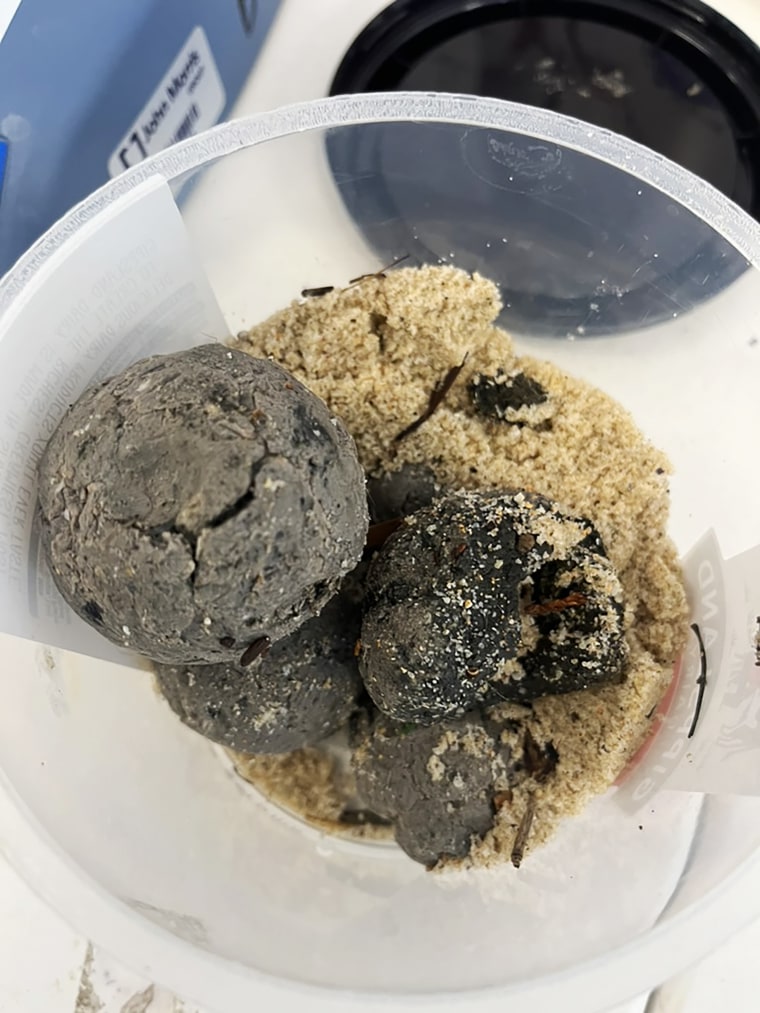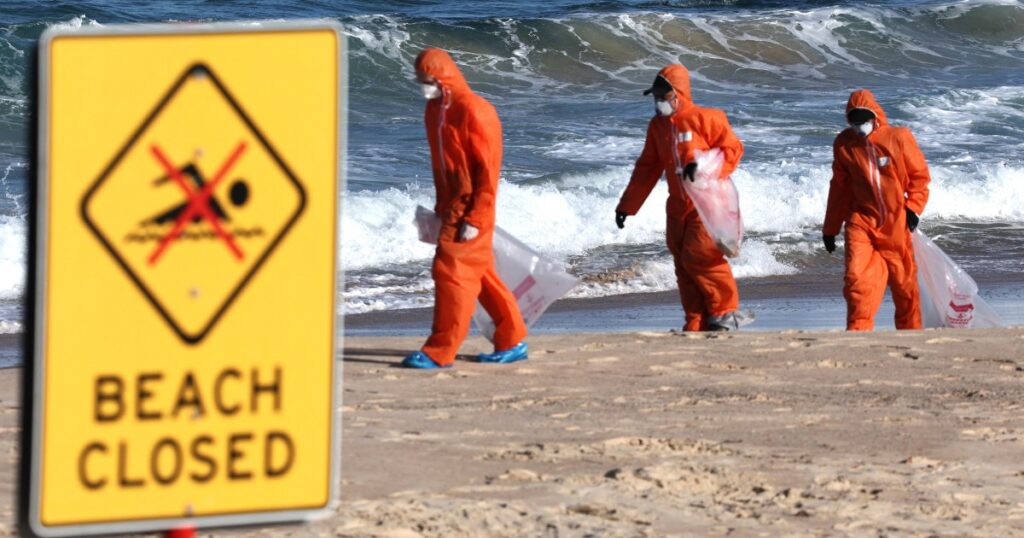Weeks after a sticky black ball washed up on Sydney’s famous beach in Australia, scientists have announced they have partially solved the mystery behind the “disgusting” blob.
The NSW Environmental Protection Agency (EPA) said on Wednesday that the golf ball-sized debris, thought to be tar balls, turned out to be something entirely different. It was a mixture of decomposed cooking oil, hair and food waste.
An investigation conducted by the Australian government and scientists from the University of New South Wales found that the black balls “likely originated from a source emitting mixed waste,” the EPA said in a statement.
“Authorities are considering several possible causes, including transport spills and wastewater spills.”
The exact origin has not yet been confirmed due to “the ball’s complex composition and the time it spent underwater,” according to the statement. “However, the final results are expected to be announced in the coming weeks.”
Thousands of dark balls have been found on multiple Sydney beaches since mid-October, including the famous Bondi Beach, leading to beach closures across the city’s coast.

At the time, authorities advised the public not to swim near or touch the debris. They said preliminary test results showed the clumps were tar balls that form when oil comes into contact with debris and water.
However, further research disproved that theory.
“What we found doesn’t seem very scientific, but it’s much worse than we ever thought,” said study participant William Alexander Donald, a professor of chemistry at the University of New South Wales Sydney. ” he said. team.
Initial testing suggested the lumps formed from crude oil or natural oil leaching from the ocean floor, but further analysis revealed the “fat, oil, greasiness” typical of used cooking oil and soap scum. The molecules were found to be present in large quantities, as well as traces of recreational drugs. Donald told NBC News.
“As I’m inspecting these balls, they smell like nothing I’ve ever smelled before. At least to me, they smell worse than anything I’ve ever smelled,” Donald said. Sewer pipes are clogged. ”
“This is a very complex analytical challenge, with hundreds of different molecules and components being detected in these masses,” he said.
It will be interesting to follow up on how often this type of debris occurs and whether scientists can trace it back to its exact source, Donald said, adding that his team has found similar debris in the past. It noted it had received several unconfirmed reports of debris washing up in similar locations, and even in south-eastern Victoria.
A statement said Sydney Water confirmed there were no problems with water facilities in Bondi and Malabar, while NSW Maritime Transport looked into recent weather patterns but could not find a clear answer.



